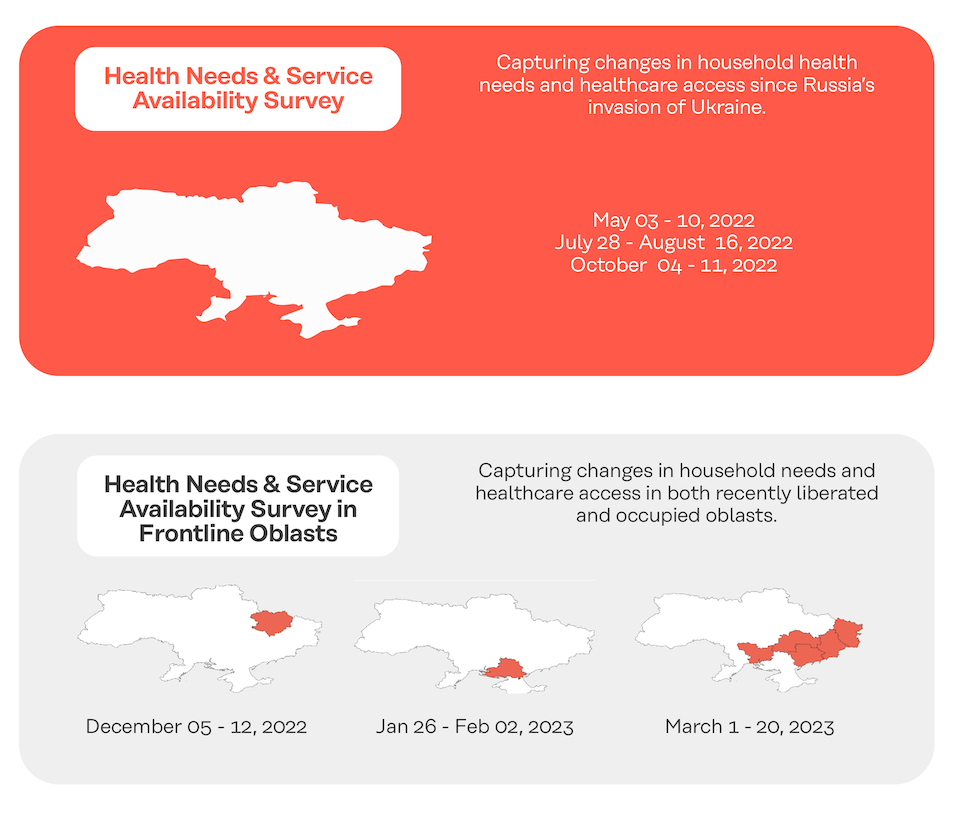Challenge
Since the Russian invasion in Ukraine in early 2022, the United Nations determined that over 14 million Ukrainians need urgent healthcare. The World Health Organization (WHO) has been working to minimize disruptions to the delivery of critical healthcare services.
WHO needed to collect data to determine health needs, quality of care, and accessibility in the fully or partially liberated oblasts of Kharkiv, Mykolaiv, Kherson and the frontline areas of Dnipropetrovsk, including those currently under occupation in Zaporizhzhya.
Solution
Using Premise, WHO is conducting bimonthly surveys to gain insight into essential health and infrastructural services. It is expected that rapid health need assessment reports will be prepared for each oblast.
Premise Contributors are asked to report on:
- Which medicines their household experiences a serious problem obtaining
- Primary reasons they had a serious problem accessing healthcare
- Problems they encountered getting care and/or treatment
With this assessment the WHO will be able to:
- Develop an evidence-based approach to guide the decision-making process for allocating resources and averting the impact of war on the health of the people of Ukraine
- Use spatially and temporally relevant data to assess households’ access to primary healthcare, medication, and other essential health needs; out of pocket payments; and other factors affecting access across all oblasts of Ukraine
Findings
In a matter of just one month of data collection following the launch of the health needs assessment, WHO learned that pain medicine, antibiotics, and heart medicine were the most needed medicines, and that security, time, and cost were the leading primary reasons Ukrainians had a serious problem accessing these medicines.
For those who have attempted to access medical services, an overwhelming number of Contributors shared that they did not have enough money to pay for the medicines. Unavailable doctors, closed hospitals, and the presence of danger were among the other reasons.
The findings will help national stakeholders provide appropriate support where needed and will be useful for the internal WHO team in Ukraine to coordinate the work of different units to build a response system to the humanitarian crisis.
The results will also inform decision makers on the planning and implementation of the emergency response and recovery. WHO will be able to prepare resources in advance for further operational transfer at the moment of liberation and assess the quality of assistance and identify key places for prioritizing the provision of services.

Implications
Using Premise, the client will be able to monitor at the oblast level:
- Self-reported health needs
- Self-reported access to primary healthcare services, family doctors, and basic medicines
- Self-reported access to specialized services and medicine
- Changes over time to track the effect of continuing population movement, active combat, new developments, events, or measures taken
- Self-reported infrastructural needs